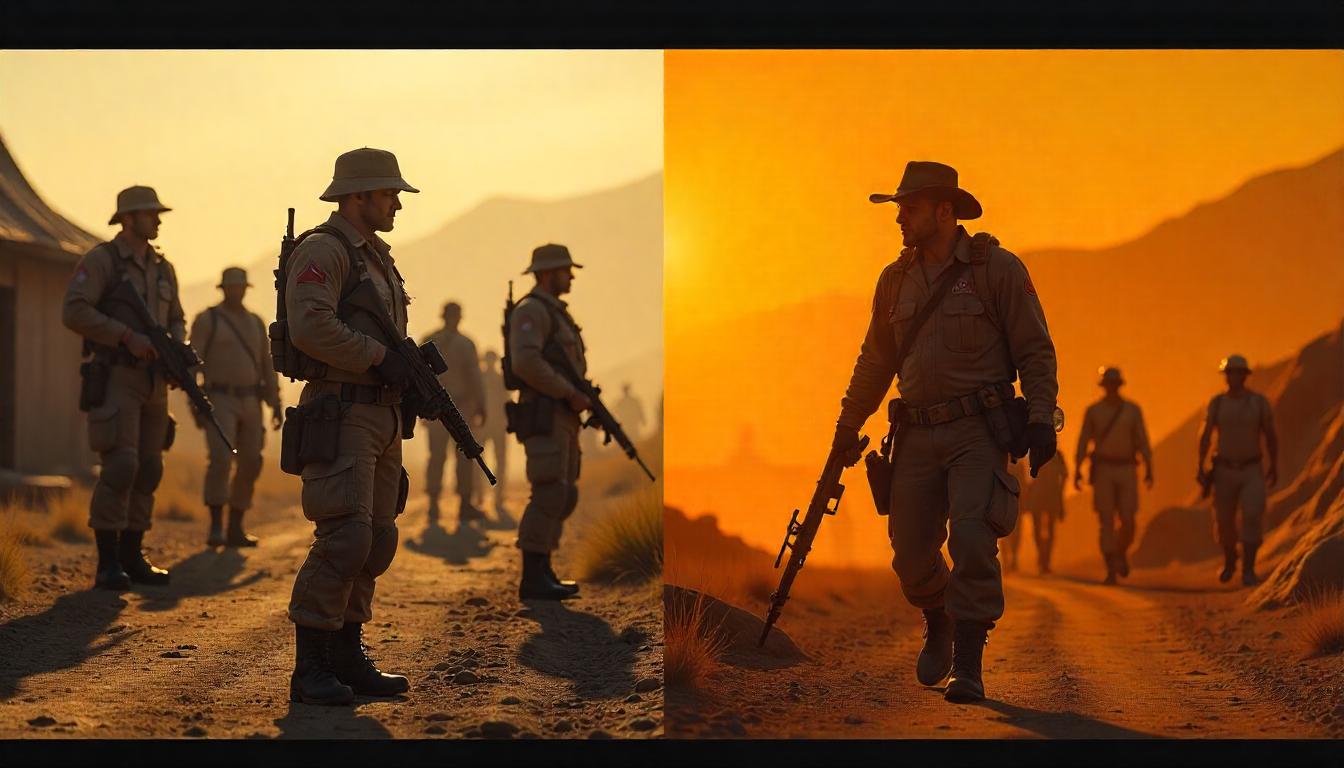When it comes to open-world RPGs, few games have sparked as much discussion and debate as Fallout 4 and Cyberpunk 2077. Both titles offer immersive, player-driven experiences set in dystopian futures, yet their approach to world design, storytelling, RPG mechanics, and player agency diverge in fascinating ways. Let’s break down what each game excels at and which provides the most immersive experience.
World Design: Post-Apocalypse vs. Neon Megacity
Fallout 4: A Wasteland Steeped in Atmosphere
Bethesda’s Fallout 4 builds upon the series’ signature retro-futuristic aesthetic, crafting a sprawling, ruined Boston filled with environmental storytelling. The Commonwealth feels tangible and lived-in, with dilapidated towns, radiation-soaked ruins, and secret underground bunkers telling stories without uttering a word. Exploration is rewarding, as nearly every location contains lore, loot, and memorable NPCs.
However, the game’s visuals can feel outdated by modern standards, and many areas lack the density and verticality seen in other RPGs. Still, Fallout 4’s seamless world, with no shortage of surprises and encounters, makes for a deeply immersive sandbox.
Cyberpunk 2077: A Densely Packed Urban Jungle
Night City, by contrast, is a marvel of modern open-world design. CD Projekt Red has crafted one of the most visually stunning and vibrant cities in gaming history, filled with towering skyscrapers, neon-lit streets, and packed alleyways teeming with NPCs. The level of detail, from advertisements flickering in the rain to bustling markets, makes it feel like a real place rather than just a backdrop.
Where Cyberpunk 2077 shines is in its verticality—multi-level buildings, mega-corporate towers, and underground nightclubs all contribute to a sense of depth rarely seen in open-world RPGs. However, the interactivity of this world is more limited compared to Fallout 4. The illusion of a living city occasionally crumbles when NPC AI fails to respond realistically, and lack of true environmental destruction limits immersion.
Winner: Cyberpunk 2077—Night City’s density and visual fidelity make it one of the most impressive open worlds ever crafted.
Storytelling: Player Choice and Narrative Depth
Fallout 4: A Strong Setup with Limited Roleplaying
Bethesda’s approach to storytelling is more about worldbuilding than deep, player-driven narratives. Fallout 4 has a compelling setup—the Sole Survivor’s search for their lost child is emotional and gripping—but the execution falls short due to a binary moral framework and a lack of meaningful choice in the main questline. The dialogue system is also criticized for its simplification compared to previous Fallout games.
That said, the side stories are where Fallout 4 truly shines. The world is packed with smaller, self-contained stories that offer moral dilemmas, eerie mysteries, and fascinating lore. Factions such as the Brotherhood of Steel, the Institute, and the Minutemen provide some level of choice, but they often lead to similar endgame results.
Cyberpunk 2077: A Deep, Character-Driven Narrative
CD Projekt Red’s storytelling chops shine in Cyberpunk 2077. The game’s narrative is rich with character development, emotional weight, and meaningful choices that alter the story’s trajectory. The relationship between V and Johnny Silverhand (played by Keanu Reeves) is a standout, offering complex moral dilemmas and evolving character dynamics.
Side quests in Cyberpunk 2077 often rival or surpass the main storyline in terms of depth, providing some of the most memorable moments in modern RPGs. Unlike Fallout 4, your choices in Cyberpunk have a significant impact on the world and characters around you, leading to multiple endings that feel genuinely different based on your decisions.
Winner: Cyberpunk 2077—CD Projekt Red’s focus on narrative depth and character-driven storytelling makes for a more engaging experience.
RPG Mechanics: Customization and Player Progression
Fallout 4: Skill Trees, Crafting, and Settlement Building
Bethesda leans heavily into customization, allowing players to build unique characters through the S.P.E.C.I.A.L. system and perks. While the removal of traditional skill points simplifies progression, the perk system offers fun, creative builds, from stealthy snipers to melee brawlers. Weapon and armor customization is extensive, allowing players to mod gear to suit their playstyle.
One of Fallout 4’s most unique features is its settlement-building system, letting players construct bases, defend settlements, and even create thriving communities. While divisive among fans, this feature adds another layer of player-driven creativity absent in Cyberpunk 2077.
Cyberpunk 2077: Deep RPG Elements with Limitations
At launch, Cyberpunk 2077 was criticized for being more of an action game with RPG elements rather than a true RPG. However, updates and patches have refined its progression system. The perk trees now offer diverse builds, from netrunning hackers to brute-force solo mercenaries. Cyberware customization allows for unique augmentations, making combat dynamic and varied.
That said, Cyberpunk 2077’s RPG mechanics still feel somewhat limited. The choices in character builds don’t always have a profound impact on gameplay outside of combat scenarios, and the economy often feels underdeveloped compared to Fallout 4’s deep crafting and trading systems.
Winner: Fallout 4—The extensive customization, crafting, and settlement-building mechanics give it the edge as a more flexible RPG.
Player Agency: Freedom vs. Narrative Structure
Fallout 4: A True Sandbox Experience
Bethesda’s philosophy prioritizes player freedom. Fallout 4 lets you roam anywhere, engage in emergent gameplay, and make choices that shape the world—even if the main story is restrictive. Want to ignore the main quest for 50 hours and just scavenge, build settlements, and get lost in side quests? You absolutely can.
Cyberpunk 2077: A More Structured Experience
While Cyberpunk 2077 does offer choice, it is ultimately a more structured RPG. You’re playing as V, a defined character with a set narrative arc, and while you can shape their journey, it doesn’t offer the same level of freeform roleplaying as Fallout 4. Still, the game’s branching quests and meaningful decisions give you agency in how the story unfolds, even if it’s within a pre-defined framework.
Winner: Fallout 4—For sheer player freedom, Bethesda’s sandbox approach remains unmatched.
The Most Immersive Experience?
If we define immersion as visual fidelity and narrative depth, Cyberpunk 2077 takes the crown. Night City is a breathtaking, deeply atmospheric world with rich storytelling. However, if immersion is about freedom and emergent gameplay, Fallout 4 wins with its dynamic sandbox approach.
Ultimately, Cyberpunk 2077 excels in narrative and world design, while Fallout 4 dominates in RPG depth and player-driven gameplay. Which one is better depends on whether you prefer a cinematic experience with meaningful choices (Cyberpunk 2077) or a systems-driven RPG with endless possibilities (Fallout 4).
Verdict: If you want deep storytelling and a breathtaking cityscape, go for Cyberpunk 2077. If you crave freedom, deep RPG mechanics, and exploration, Fallout 4 is your wasteland playground.






Leave a Reply